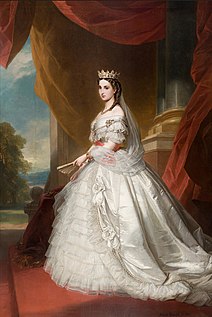Carlota of Mexico, Empress Carlota, Maximilian I, Mexican Empire, History of Mexico, Empress of Mexico, Habsburg Dynasty, Carlota biography, Carlota of Belgium, Mexican royalty
Introduction
Carlota of Mexico, born Charlotte of Belgium, remains an enigmatic figure in history, known for her brief yet impactful reign as Empress of Mexico. Married to Maximilian I, the ill-fated emperor who accepted the Mexican throne under French influence, Carlota’s story is one of political intrigue, tragedy, and resilience. Despite her tumultuous tenure, Carlota’s legacy endures, sparking curiosity and fascination among historians and enthusiasts alike. In this article, we embark on a journey through the life and times of Carlota of Mexico, exploring her rise to power, her contributions, and the lasting imprint she left on the history of Mexico and beyond.
The Early Years and Rise to Royalty
Carlota, born on June 7, 1840, into the prestigious House of Saxe-Coburg and Gotha, was the daughter of King Leopold I of Belgium. With a lineage deeply rooted in European royalty, Carlota’s upbringing was marked by privilege and expectation. Educated in the traditions of nobility, she exhibited intelligence, charm, and a strong sense of duty from an early age.
At just 17, Carlota’s life took a significant turn when she married Archduke Maximilian of Austria, brother to Emperor Franz Joseph I. Their union, orchestrated for political alliances, would soon thrust Carlota into the heart of global affairs. Maximilian’s ambitions and the opportunities presented by the French intervention in Mexico led to the couple’s ascension to the Mexican throne in 1864, where Carlota would reign as Empress alongside her husband.
Read Also: George III of England: The Long Reign and Legacy of a Complex Monarch
Reign in Mexico: Challenges and Achievements
Carlota and Maximilian’s reign in Mexico was fraught with challenges from the outset. Despite initial optimism and support from conservative factions within Mexico and European powers, including France, their rule faced staunch opposition from Mexican republicans led by Benito Juárez. The political landscape was further complicated by the American Civil War, which influenced the dynamics of international relations.
Carlota’s role as Empress was marked by her tireless efforts to bolster her husband’s authority and legitimacy in Mexico. She embarked on diplomatic missions to Europe, seeking alliances and support for Maximilian’s regime. However, her endeavors were met with limited success as European powers, preoccupied with their own affairs, offered little assistance.
As the conflict with Mexican republicans escalated, Carlota’s resilience was put to the test. She endured periods of isolation and uncertainty, grappling with the harsh realities of political intrigue and betrayal. Despite facing mounting pressure and setbacks, Carlota remained steadfast in her commitment to the Mexican people and her husband’s cause.
Tragic End and Legacy
The downfall of Carlota and Maximilian’s reign reached its climax with the withdrawal of French troops and the subsequent capture of Maximilian by Mexican republican forces in 1867. Despite Carlota’s desperate pleas for assistance from European allies, her efforts were in vain, and Maximilian was executed, bringing an abrupt end to their imperial aspirations.
Carlota’s fate was no less tragic. Devastated by the loss of her husband and disillusioned by the failure of their Mexican venture, she suffered a mental breakdown and spent the remainder of her life in seclusion. Despite occasional periods of lucidity, Carlota never fully recovered from the trauma of her experiences in Mexico.

